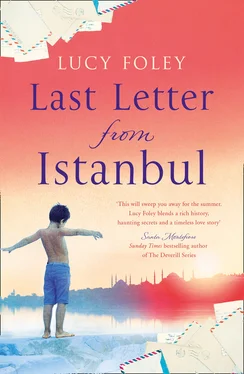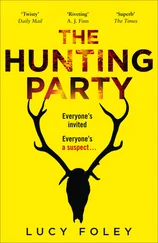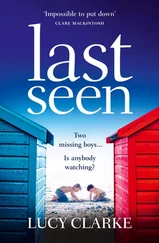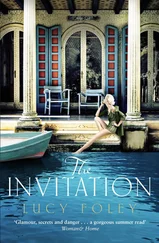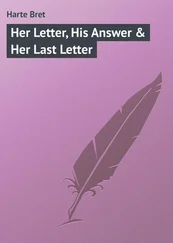Now the light reaches the tangled strands of hair. In the shade they appeared black – now they reveal themselves as various shades of brown, caught in places as bright as that gold thread. The light gathers itself for the final occupation: advancing up the neck, the fine bones of the jaw, the slightly open mouth, the prow of the nose, the eyelids …
Nur wakes. Pink light. She opens her eyes. White. She sits up, groggy, wipes her mouth. A restless night’s sleep. What woke her, in the small hours? A bad dream. She cannot recall the details now. The more she grasps at them the faster they sink, like creatures burrowing into sand. She is left only with the feeling of it, a lingering unease. More unsettling, this not-knowing. She rises, looks at the day. Across the flat rooftops she can just make out the water, a coruscation of light. She will shake this feeling from her by breakfast, she is certain. For what can there be to upset one on a morning like this?
Oh. A pause. Something is missing . Now it happens to her, as it does every morning. The remembering of all that has changed. She feels the knowledge resettle itself upon her shoulders – familiar, almost reassuringly so. For at least now she has found it again, knows the weight of it. It is far worse than the invention of any mere bad dream.
In the next room, someone is making coffee. The scent of it is like the day itself; intimations of warmth and comfort. She can hear the particular musical note of the copper pot as it strikes the stove. She thrusts her feet into her worn babouches , shuffles out into the corridor. Leaning up, chin just clearing the top of the stove where the pot exhales a dangerous plume of steam, is a small figure. The boy. He looks up at her, caught between pride and guilt. Then he smiles.
She cannot quite bring herself to be angry with him. The boy is like a different child from that of two years ago. Often, in that time, she would find him in the mornings lying upon his back with his eyes open, and wonder if they had ever closed, or if he had merely spent the night watching a projection of horrors upon the ceiling. He began to eat, at least. But there was something mechanical in it, the way he took the food and chewed, and swallowed, and opened his mouth for the next bite. It was a keeping alive, the pure instinct of an organism.
For a long while there had been no glimmer of the boy he had been. She wondered if that child had sunk completely from view – never to return. There were things that could change a person absolutely. And in childhood one was more malleable, more impressionable; the change might be all the more devastating.
She takes her cup up onto the flat roof of the building. This is her secret place; she does not think any of the other inhabitants of the apartment block know of it. Here the day cannot touch her yet. She is mistress of it. The morning is clear, still cool. But there is the promise of heat. The water is eloquent. There is a shimmer of warmth on the horizon, too, the clouds massing above are saffron-coloured.
She takes a sip of coffee. He has made it well, far better than her grandmother, who thinks herself above the making of coffee and always burns it.
The day is still as a painting. It is hard to imagine that down there is movement, chaos. But she can hear it: the waking sounds of the streets, the call of the milk seller, the faraway shouts of stevedores on the quay, the fishermen beginning to hawk the catch of the day. From a short distance away the rattle and whine of a tram. From the nearby district of Pera, some two hundred yards to the west, there comes the thin wail of a violin – relic of a night’s revelries.
Before, she never considered this area, Tophane, as somewhere one might live. It was a nowhere – an afterthought, clinging to the coattails of the great city, a place where the different neighbourhoods inevitably met up with one another, their great streets coming together like so many loose ends of string.
She looks beyond the quays, to the great sweep of the Bosphorus, spotted with warships. From up here they seem miniature, as though she might sweep them back out to sea with the flat of her hand. Below are represented three of the four languages she has in her possession. A dimly imagined peacetime future of tranquil pursuits – of Paris, London, Rome; the reading of European Literature.
The beginning of the occupation. The storm of their boots against the cobblestones. A hundred eyes observing from behind shutters in what might seem to the uninitiated like an empty street: old women, young women, hating them, fearing them. The gun turrets of the huge ugly ships in the Golden Horn swivelling toward the city’s ancient glories – the Aya Sofia, Süleymaniye, Sultanahmet. A threat unspoken, yet deafening.
Those first nights like a held breath.
And they said there would not be an occupation . They had promised it. The British, the French, the Italians – at the Armistice that ended the Great War. Even those who have never read a newspaper, even those who cannot read at all , know this. Know, now, not to trust them in anything.
The new indignities, stinging like a slap: men ordered to remove the red fezzes they had worn for as long as they could remember. Women leered at, somehow all the more so if they were wearing the veil.
Up here, on the roof, this was where she had sat, hidden from view, as soldiers of the British army marched through the streets below. Snatches of speech floated up:
‘Living like animals …’
and
‘Their women little better than whores, really …’
and
‘A man here can take as many wives as he likes …’
and
‘You might be in luck, Clarkson, if the ladies don’t have a say in it …’
and
‘Just look at the state of this place. No wonder they lost.’
Would they have been so loud, if they had known that they were being listened to and understood? She suspected – and this was the most insulting probability – that they would not have cared. The city was theirs for the taking. They even have their own name for it: Constantinople . This other name is from the realm of officialdom, of mapmakers. İstanbul: that is what people call it. That is how she has always known it, that is the place in which she grew up, familiar, beloved. But the rules are made by others now.
As those men had continued with their insults she had crawled to the edge of the rooftop, making sure to stay hidden from view. She had tilted the cup of coffee she held in her hand, and allowed a few hot drops to fall. The whim of a moment; but they fell as though she had planned her target perfectly. A fat lieutenant, removing his cap for a few seconds to scratch his bald pate. The almost perceptible sizzle as the scalding liquid made contact with the sensitive skin. His howl shrill as one of the street cats.
But those were more courageous days. Murmurings of resistance. Brave words, rebel words: they would undermine them at every turn; they would set fire to their storehouses, they would defy the curfew, they would spit in their faces. But then the indignity became commonplace. A numbness, setting in. The business of living got in the way, that was it. By silent agreement, all seemed to decide that the best form of resistance was not with outward mutiny but to continue as though absolutely nothing had happened. They would defy their enemy by ignoring the presence of khaki in the streets, the armada in the Golden Horn. With the exception of a few, that is, who work in the shadows plotting real destruction and death for the invaders.
Now she looks beyond the Bosphorus, to the opposite shore, to the dark green hillside of another continent. Asia. The few dwellings visible amidst the trees are as intricate and delicate as paper cut-outs. Among them is a white house, more beautiful than all the rest.
Читать дальше
